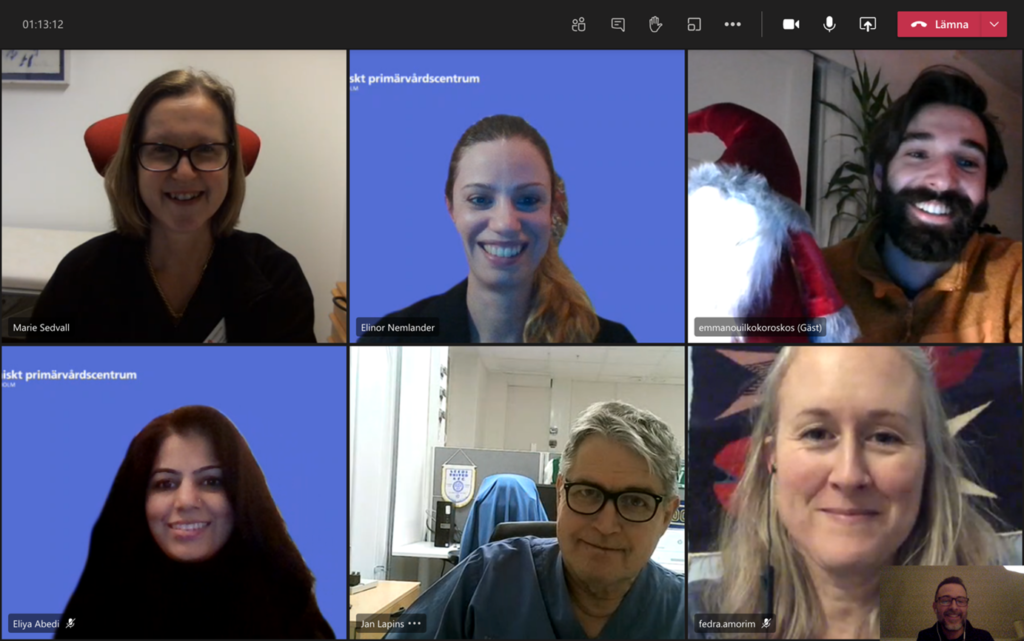Recently the APC team conducted a virtual workshop on melanoma care with a group of clinical experts affiliated with the LifeChamps project. Discussions concerned the melanoma care process pathway, alongside necessary clinical training and education for physicians in primary care – this in relation to the activities and planning of the future APC pilot use case in the LifeChamps project and other related projects.
An investigation of potential cancer starts within primary health care for seven out of ten patients who are later diagnosed with cancer. However, the big challenge at the primary health care centre is to identify the few patients who have a potentially dangerous disease amongst all patients who are seeking medical attention for their different symptoms and conditions.
Follow-up of cancer patients needs a high level of continuity. Many cancer patients feel left out to rehabilitate themselves when their primary cancer treatment is completed at the specialized clinics in the hospitals. There is a gap between primary and secondary care, with a lack of resources and competence in managing cancer disease, prognosis and follow up within primary care. This affects the quality of care as well as the health-related quality of life (HRQoL) for all cancer patients. The LifeChamps project aims to address this gap and provide a digital support tool to patients, caregivers and clinicians through the LifeChamps platform. Additional efforts from APC and CaPrim, educating and training primary care staff in early signs of cancer, cancer diagnosis and follow up, aim to increase the knowledge and clinical competence to support HRQoL for these patients.
APC and CaPrim have, in collaboration with the Stockholm Gotland Regional Cancer Center and the Palliative Knowledge Center in Stockholm County, arranged an iterative course in Basic Cancer Care. Alongside these efforts, there are several ongoing research and innovation projects at APC – such as LifeChamps – as well as other projects, e.g. investigating the role of a dedicated contact nurse for cancer patients or the role of mHealth apps for symptom burden reporting after cancer treatment, to mention few.
In sum, there are many ongoing efforts at APC that aim to support and increase the quality of several care-related issues for many cancer patients. However, primary care is in great need of both political, structural and economic support in order to implement these efforts and concepts into clinical practice.
The clinical expert group concluded the present workshop by preparing the draft questionnaire for clinicians needed for the upcoming evaluation/monitoring of the digital clinical training for the melanoma care process in primary care.



